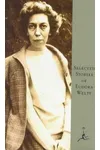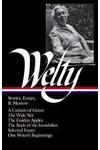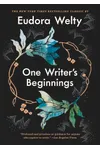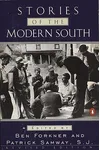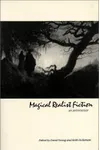Picture a Southern storyteller who spun tales of grit, grace, and the human spirit—meet Eudora Welty! Born in 1909 in Jackson, Mississippi, Welty crafted stories that captured the heart of the South with a photographer’s eye and a poet’s pen. Her Pulitzer Prize-winning work, steeped in vivid imagery and Southern charm, continues to enchant readers worldwide.
From short stories like ‘A Worn Path’ to novels like The Optimist’s Daughter, Welty’s writing is a love letter to the complexities of human life. Let’s dive into her world, where every detail tells a story and every character feels like an old friend.
The Making of Eudora Welty
Eudora Welty grew up in Jackson, surrounded by books and the rhythms of Southern life. Her parents, both avid readers, nurtured her love for storytelling. After studying at Mississippi State College for Women and the University of Wisconsin, she honed her craft at Columbia University. But it was her work as a photographer for the Works Progress Administration (WPA) during the Great Depression that shaped her unique perspective. Traveling across Mississippi, Welty captured the lives of ordinary people, an experience that infused her writing with authenticity and empathy.
Eudora Welty’s Unforgettable Stories
Welty’s stories are like snapshots of the South—rich, layered, and timeless. Her short story ‘A Worn Path’ follows Phoenix Jackson, an elderly Black woman on a perilous journey to get medicine for her grandson. The tale’s mythic undertones and vivid prose showcase Welty’s ability to weave universal themes into intimate narratives. Another gem, The Optimist’s Daughter (1972), won the Pulitzer Prize for its poignant exploration of grief, memory, and family in a small Southern town.
Her collection The Golden Apples (1949) blends mythology and Southern folklore, creating a tapestry of interconnected stories. Welty’s style—marked by lyrical language, sharp dialogue, and a deep sense of place—sets her apart. She didn’t just write about the South; she brought its sights, sounds, and soul to life, making readers feel the humidity and hear the cicadas.
Unlike some of her contemporaries, Welty avoided heavy-handed social commentary, letting her characters’ lives speak for themselves. Her humor and warmth shine through, even in tales of hardship, making her work both accessible and profound.
Why Eudora Welty Matters
Eudora Welty’s influence on American literature is undeniable. She paved the way for Southern writers like Flannery O’Connor and Alice Walker, blending regional storytelling with universal truths. Her ability to capture the human condition with empathy and precision resonates with readers today. Welty’s photography, too, remains a testament to her knack for finding beauty in the everyday, from dusty roads to weathered faces.
Beyond her literary contributions, Welty’s legacy lies in her celebration of the small moments that define us. Her work reminds us to listen, observe, and cherish the stories around us. In 1998, she was awarded the Presidential Medal of Freedom, cementing her status as a national treasure.
- Born: April 13, 1909, Jackson, Mississippi
- Key Works: A Worn Path, The Optimist’s Daughter, The Golden Apples
- Awards: Pulitzer Prize (1973), Presidential Medal of Freedom (1998)
- Died: July 23, 2001
Ready to step into Welty’s world? Grab A Worn Path or The Optimist’s Daughter and lose yourself in her lyrical, soulful South!












